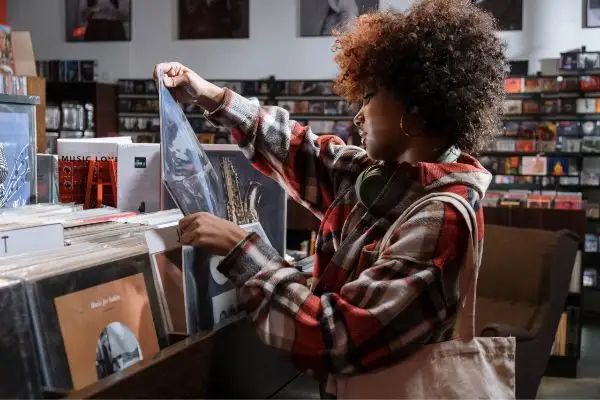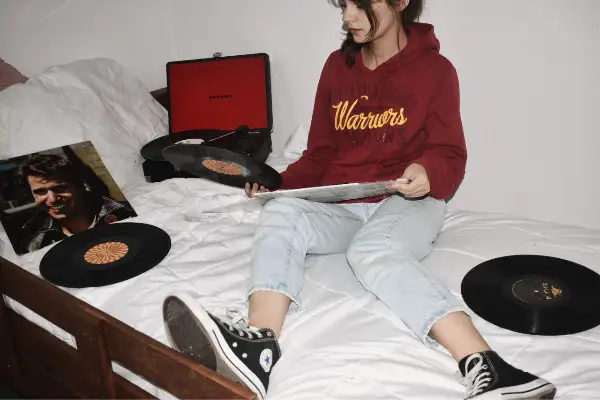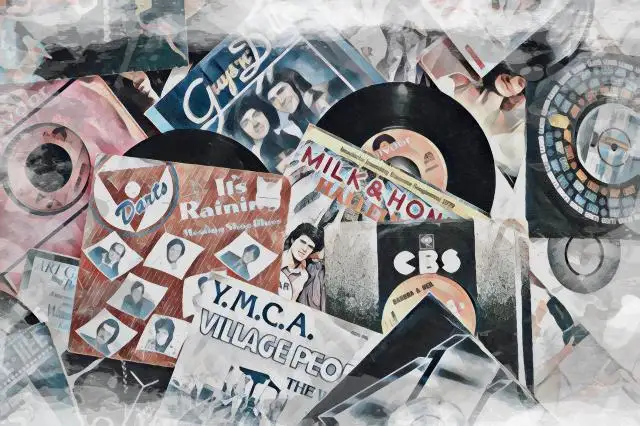If you're a beatmaker, learning how to obtain a sample clearance is an essential skill. Even if you sample music for just a second in your new beat, you still have to obtain clearance from the composition and master recording owner.
This definitely isn't the most exciting part of the process of making music, but doing so proactively is vital to avoid any legal trouble and maintain your good graces across the music industry.
Below, we'll outline everything you need to know to successfully secure a clearance. We'll also showcase a couple of alternatives in the event that you'd like to circumvent sampling copyrighted music altogether. Let's jump into it!
What Is a Sample Clearance?
Essentially, getting a sample clearance is obtaining formal permission from the copyright owner of the master rights holders and music publisher to use parts of the original sound recording in another song. Failing to get a clearance violates copyright law, opening up the artist who sampled the actual recorded audio to potential lawsuits.
Clearing a sample typically involves paying an upfront fee and promising a small percentage of future royalties. There are two parts to a sample clearance:
Master Recording Copyright
To clear a sample, first you need to contact the owner of the master recording. This might be done through a record label or be owned directly by the artist.
Composition Copyright
The composition or publishing copyright owners are the second half of the equation. You can find the details of these copyright owners using the databases of performing rights organizations (PROs) as discussed below.
When Do I Need a Sample Clearance?

Whether you use one second of a song or a whole minute, you'll have to commit to the clearance process just the same. The owner of the master has full control over the original song and you cannot release a song publicly until you clear samples accordingly. We'll outline how to obtain permission properly below.
How Much Does a Sample Clearance Cost?
Unfortunately, there is no standard cost when it comes to obtaining permission to use part of an original recording in your beat. In some cases, you'll be able to reach out directly to the independent artist, in others you'll be working through a record company, who will need to negotiate with copyright owners or the original recording.
You can expect to pay anywhere from a couple of hundred of dollars to thousands of dollars to use the rights holder's song in your beat. In addition to this upfront fee for the original master recording and underlying composition use, artists are also entitled to ask for a small percentage of future royalties of the sampling music.
Negotiations can be intense which lead some to use sampling consultants to act as liaisons between the record labels and beatmakers.
How To Clear a Sample
Have a sample you need to clear? Here are the steps you'll need to take in order to secure the permissions necessary to formally release it across streaming platforms:
1. Find Out Who Owns The Copyright
The first step to clearing a sample is finding out who owns the copyright for the master recording and the composition or publishing copyright. For the master recording owner, you might get lucky with a quick Google search. You can also check the credits on a streaming platform like Spotify, or utilize sites like All Music to seek out rights holders.
For publishing, you'll want to search a performing rights organization database. Some of the most common databases include BMI , SESAC , and ASCAP . You need to contact and obtain permission from both parties to successfully clear a sample.
2. Clear The Sample
Contact all copyright owners asking for permission to utilize a sample, providing a clip of the track that uses the sample in question for context. Note that no one is obligated to let you sample their music.
In fact, some songs or labels might straight up have a no sampling policy. In this event, you will need to change the underlying music and opt for one of the alternatives listed below.
If the parties are willing to cooperate, you can expect to pay an upfront fee for the use of the sample. The original sound recording owners might also ask for a songwriting credit or points toward future royalties. All of these terms can be negotiated, but you cannot proceed to release your track until the original artist's song is cleared.
3. Release Your Masterpiece!
Once you've finalized your agreement with any copyright holder and original artists, you're ready to release your cleared composition! As a courtesy, it's always nice to acknowledge the samples artists on proper channels on social media on release day, but this isn't required.
When in doubt, ask the original artist how and if they would like to be mentioned. In the future, it might be worth reaching out to uncleared sample owners far ahead of the release process so that you can have more of an idea of how much it will cost to use the sample in your new song. You can also use pre-cleared samples or explore some of the alternatives listed below.
Alternatives To Clearing Samples

There is no denying that getting a sample cleared can be a tedious, expensive process. In some cases, utilizing a song's sample may be downright rejected. If you find yourself in a situation where you don't have funds or permission to obtain sample clearance, consider the following alternatives:
Recreating a Similar (Though Different) Sample
Even if you can't use a particular sample, it can still make awesome inspiration for your track! Listen to your sample in context and try to identify what about it is making so much sense - is it the tone of the sample? The placement? The rhythm? Figure out what's so special about the sample and use the same principle to workshop your own original sound as a replacement.
Using A Sample Library
There are tons of royalty-free sample libraries you can use to source samples for your beats. Consider sites like TrackLib and BPM Create , to name a few. Just note that it's a good idea to really make each sample your own by editing and playing with it since thousands of producers source sounds from these royalty-free sample banks.
Sample Your Own Music
Find yourself stumped? Need something to break your writer's block ? Try sampling your own music (assuming you own your master recording and publishing rights). Even if you don't own all of the rights to your songs, it's probably a lot easier to negotiate a deal with parties you already know.
Sample Clearance FAQs
Clearing samples successfully is a critical skill for any artist. Check out these commonly asked questions and answers to avoid copyright infringement:
How much is sample clearance?
Sample clearance varies in price on a case by case basis. You will likely be asked to pay an upfront sample clearance fee, and might also give some points on the master recording depending on the prominence of the sample in a song.
How long does sample clearance take?
Unfortunately, there is no set amount of time of how long sample clearance could take. Generally speaking, the more rights holders a song has, the longer it would presumably take to get cleared since you need to get clearance from each party.
What is a sample clearance issue?
If you don't obtain clearance from both the master recording owner and publishing royalties (also known as composition) owner, you'll be liable for copyright infringement. Therefore, it's essential to get your samples cleared proactively.
Who is responsible for clearing a sample?
Whoever is utilizing the sample in their own music needs to be obtaining permission from both the master and composition rights holders of a song. Depending on the song, these negotiations may take place through a record label, or multiple people depending on the splits. In some cases, you might use sample clearance services to expedite the process.
Hopefully, this guide makes it easier for you to clear a sample! With prolonged financial negotiations and several writers, the process can be surprisingly complex, but the labor of love is worth it for the right beat.





